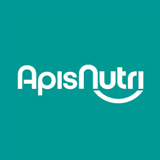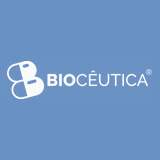Navigating the Landscape of Personal Development: A Comprehensive Guide
In a world that constantly pushes us towards improvement, personal development has taken center stage in our lives. Whether it’s fostering new skills, honing emotional intelligence, or improving our physical health, the journey of personal growth is as individual as it is profound. This article explores various dimensions of personal development, offering insights, tips, and a wide array of suggestions to suit different needs and aspirations.
Understanding Personal Development
Personal development refers to the conscious pursuit of personal growth, with the aim of maximizing our potential and improving various facets of our lives. This journey is ongoing and can encompass career advancements, relationship building, emotional intelligence growth, and physical health improvements. At its core, personal development is about self-awareness and the proactive steps we take toward becoming the best version of ourselves.
Why Personal Development is Important
The significance of personal development cannot be overstated. Here’s why it is crucial for both personal and professional growth:
-
Increased Self-Awareness: Personal development encourages individuals to reflect on their values, beliefs, and motivations, enhancing their understanding of themselves.
-
Enhanced Skills: Whether it’s learning a new language, developing leadership capabilities, or improving time management, personal development is about acquiring knowledge and honing skills.
-
Boosted Confidence: As we conquer new challenges and develop new skills, our self-esteem builds, empowering us to take on even greater challenges in life.
-
Improved Relationships: By understanding ourselves better, we can navigate our interactions with others more effectively, cultivating healthier and more fulfilling relationships.
-
Increased Productivity: Effective personal development strategies can lead to better time management and prioritization, enhancing our efficiency in both personal and professional pursuits.
- Resilience and Adaptability: Learning to cope with setbacks and adapt to change is crucial in today’s fast-paced world. Personal development prepares us to face life’s uncertainties with grace and resilience.
Areas of Personal Development
While personal development can take many forms, here are some key areas to focus on:
-
Career Development: This involves setting career-related goals, pursuing further education or certifications, and seeking mentorship opportunities. Engaging in networking and staying updated on industry trends are also crucial.
-
Emotional Intelligence: Understanding and managing emotions, both our own and those of others, is essential for building strong relationships and effective communication. Consider taking courses on emotional intelligence or engaging in mindfulness practices.
-
Physical Health: This encompasses regular exercise, a balanced diet, and adequate sleep. Developing a healthier lifestyle contributes to improved mental clarity and overall well-being.
-
Mental Health: Techniques such as meditation, therapy, and journaling can aid in maintaining mental well-being. It’s vital to acknowledge and address mental health challenges and seek professional help when needed.
- Financial Literacy: Understanding personal finance, budgeting, saving, and investment can significantly affect one’s quality of life. Financial literacy empowers individuals to make informed decisions and plan for the future.
Strategies for Effective Personal Development
To effectively embark on a personal development journey, consider incorporating some of the following strategies into your routine:
-
Set SMART Goals: Specific, Measurable, Achievable, Relevant, and Time-bound goals provide clarity and structure to your personal development journey. Break your goals into smaller, actionable tasks to maintain motivation.
-
Create a Personal Development Plan: Outline your goals, the skills you want to acquire, and how you plan to achieve them. Regularly review and adjust this plan as you progress.
-
Seek Feedback: Constructive feedback from peers, mentors, or supervisors can provide insights into areas for improvement and highlight your strengths.
-
Continuous Learning: Engage in lifelong learning through books, online courses, workshops, and seminars. Embrace curiosity and seek knowledge in various fields.
-
Practice Self-Reflection: Regularly set aside time to reflect on experiences, aspirations, and whether you’re moving toward your goals. Journaling can be an effective tool for this process.
- Build a Support Network: Surround yourself with positive influences who encourage growth and support your journey. This network can include mentors, friends, and like-minded individuals.
Embracing Change
Personal development requires a willingness to step out of your comfort zone and embrace change. This can be intimidating, but it’s essential for growth. Here are some tips to help you embrace change:
-
Adopt a Growth Mindset: Believe that your abilities and intelligence can be developed through dedication and hard work. This mindset fosters resilience and a love for learning.
-
Challenge Limiting Beliefs: Identify beliefs that hold you back and work on challenging them. Reframe negative thoughts into positive affirmations.
- Celebrate Progress: Acknowledge your achievements, no matter how small. Celebrating progress helps maintain motivation and reinforces positive behavior.
Combining Strategies
Feel free to modify or combine these strategies to better suit your personal development journey. Not every approach works for everyone, so tailor your path based on your unique needs and circumstances. Whether you’re focused on emotional intelligence, career growth, or physical health, blending these strategies can yield comprehensive results.
FAQs
1. What is personal development?
Personal development is the process of self-improvement through conscious efforts to enhance various aspects of one’s life, including emotional, intellectual, physical, and social domains.
2. How do I start my personal development journey?
Begin with self-assessment to identify areas needing improvement, set SMART goals, create a plan, and seek resources and support to aid your progress.
3. What are some resources for personal development?
Resources include books, online courses (like Coursera or Udemy), podcasts, seminars, and workshops. You might also consider engaging in local community groups or finding a mentor.
4. How can I measure my progress in personal development?
Track your goals, journal your experiences, and seek feedback from trusted peers or mentors. Regularly review and assess your personal development plan.
5. Is personal development just about professional growth?
No, personal development encompasses various aspects of life, including emotional intelligence, relationships, physical health, financial literacy, and overall well-being.
Conclusion
Personal development is a lifelong journey that empowers individuals to unlock their full potential. By embracing self-awareness, setting achievable goals, and actively engaging in various strategies, you can cultivate a transformative path toward personal growth. Remember, the most crucial step is to begin—take that first step today, and watch your life unfold in ways you never thought possible.
It seems you haven’t specified an article title for me to write about. Could you please provide a specific topic or title you’d like me to elaborate on? This will help me create a tailored response that meets your needs!




